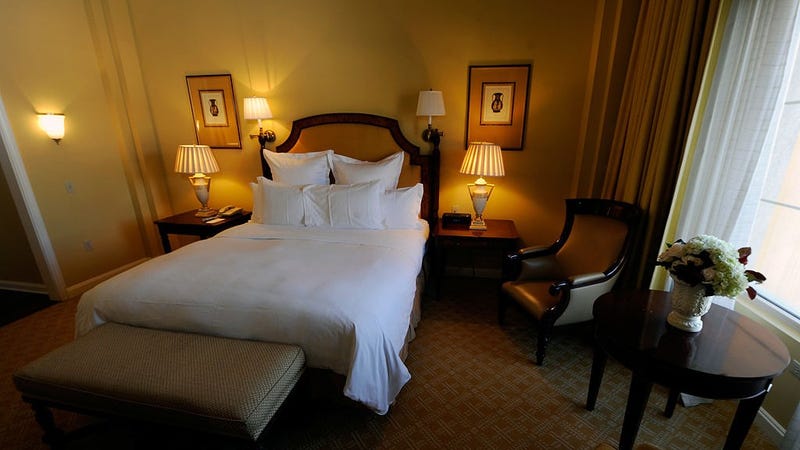
Some people enjoy falling asleep with their TV on in the background, or even have a night light plugged in to the wall, but a recent study done by Northwestern University detailed how sleeping with any type of light on can hurt your health.
Dr. Phyllis Zee, chief of sleep medicine at Northwestern University Feinberg School of Medicine and a Northwestern Medicine physician, and her team of researchers had 20 young, healthy people sleep in a mostly dark room one night and then had half sleep in a room with some lighting the other night.
"The results from this study demonstrate that just a single night of exposure to moderate room lighting during sleep can impair glucose and cardiovascular regulation, which are risk factors for heart disease, diabetes and metabolic syndrome," Dr. Zee said.
The researchers took tests of the study's participants while they slept, such as measuring heart rates and drawing blood, in addition to having them wear monitoring devices. Upon waking up, the participants were given a large amount of sugar.
Those who slept in the room with lights on had a much higher heart rate and struggled to control their blood sugar in comparison to the people who continued to sleep in the dark room.
"And that is what we call a state of insulin resistance," Dr. Zee told NPR.
Insulin resistance occurs "when cells in your muscles, fat and live don't respond well to insulin and can't use glucose from your blood for energy." Because of that, the pancreas will create more insulin and the person's blood sugar will begin to increase.
"Now we are showing a mechanism that might be fundamental to explain why this happens. We show it's affecting your ability to regulate glucose," Dr. Zee said.
Dr. Zee went on to tell NPR that the people who slept in the lit room and had higher heart rates in the morning said they still had a good night's sleep.
"It's almost like the brain and the heart and knew that the lights were on, although the individual was sleeping," Dr. Zee said.
The study went on to give some suggestions for how people can help their bodies by sleeping with less light on. It was also noted that nearly 40% of people keep a lamp or their TV on when they sleep.
The first piece of advice is simple, don't turn the lights on when you go to bed. If you feel the need to have some type of light on in your room while sleeping, try to get a dim light and keep it closer to the floor. On top of that, stay away from using white or blue lights, and instead get a red/orange light because it is "less stimulating for the brain."
Some people may also find that wearing an eye mask to sleep could help this issue, while blackout curtains have also shown to be helpful for those dealing with outside lights.
"I think the strength of the evidence is that you should clearly pay attention to the light in your bedroom," Dr. Zee said, per CNN. "Make sure that you start dimming your lights at least an hour or two before you go to bed to prepare your environment for sleep."


